Soon it will be Cillian Murphy’s birthday. “I’ll be turning 40,” the Irish actor says. “Just a couple of months.” A placid and even-spoken man, Cork-born and with an iron Corkonian modesty at the core of him, Murphy does not sound overjoyed about his approaching milestone. But neither does he sound histrionic or weepy. Last night, he says, he was in bed by 10, falling asleep to the comforting murmur of The World Tonight on Radio 4. These days, this is not even an uncommon scenario. “I feel like I’m entering a different phase of my life,” he says. “I don’t mind embracing it. I had a really good time in my 20s and 30s. Now I’m ready for a bit more… decorum, I guess? A bit more moderation? Still enjoying being a young man, but looking over the wall into the other side, you know?”
The Guardian’s product and service reviews are independent and are in no way influenced by any advertiser or commercial initiative. We will earn a commission from the retailer if you buy something through an affiliate link. Learn more.
It’s funny to hear Murphy speak this way about getting on, especially because the 39-year-old could still be mistaken, at first glance, for a teenager. We meet in a London park on a bright and chilly spring day, and it strikes me that Murphy (slender, slouching, his cheeks reddened by cold and a long fringe swept boyishly to one side) would not look out of place with a muddy football under his arm. “It’s only an advantage as an actor,” he smiles when I point this out, “looking younger than you are. If you can maintain it.”
We begin a circular stroll around the park and discuss Tommy Shelby, the character Murphy plays in Peaky Blinders, the BBC historical drama that first broadcast in 2013 and starts its third series next month. Shelby is a racecourse hustler turned crime lord in interwar Birmingham: extremely violent, extremely determined and centrally defined by an absolute disregard for his own existence. “Godless,” Murphy calls him. “Unafraid to die. Deep down, maybe wishing to die. Which makes him terrifying, you know?”
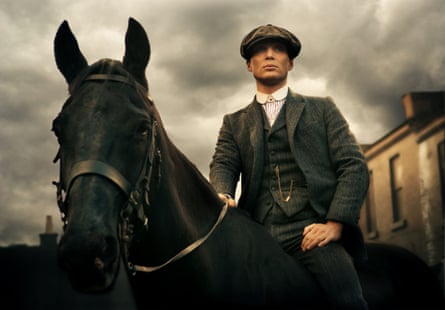
We agree it seems most unlikely, in the show’s immediate future, that the character of Tommy Shelby will wring his hands and ponder the existentials of turning 40. The drama, written by Steven Knight, is named for Tommy’s gang of crooks – known as “Peaky Blinders” because of the razor blades, or blinders, they keep hidden in the folds of their peaked caps. Knife fights are not infrequent, but it would be an uncharacteristically benign episode of Peaky Blinders were Tommy Shelby to be threatened only with razors. By my count, Murphy’s character gets a cocked gun pressed to his temple at least once an episode. He’s endured beatings, bullets to the chest, amateurish and punitive dentistry. He’s shot both enemies and friends in the head. The new series will pick up after a second-series finale during which Shelby avoided execution in a muddy field. At the very end of that long, fierce scene – a piece of properly unforgettable telly – he staggered away looking almost aggrieved not to have been finally put down.
In the best possible way, Tommy Shelby is absolutely exhausting to watch. “He’s exhausting to play,” Murphy counters. “I think it’s because he’s so relentless. And he never seems to sleep. There’s never a point where he says, ‘Fuck it’ and gives up. Tommy is a gift of a character, but he does wear me down. I come away drained.”
Boring practical factors contribute, Murphy says. Peaky Blinders shoots tend to be compressed and demanding. “Eleven-day fortnights, 16-hour days, pages and pages of dialogue.” Though set in 1920s Birmingham, filming takes place in Liverpool; during shoots, Murphy moves away from his wife and two sons in Dublin and stays in a rented flat in the city. Life around filming, he says, “is zero. It’s cancelled life. You go home to your tiny apartment at the end of the day and you feed yourself for sustenance and you learn the lines for the next day and you try to get as much sleep as you possibly can. Which isn’t much. And then you get up and do it again.”
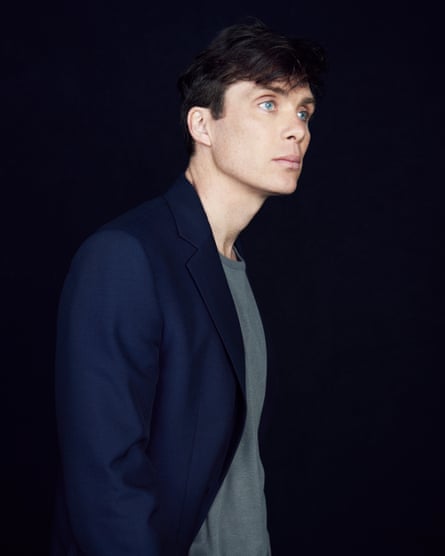
When you put it like that, playing Tommy Shelby doesn’t sound so appealing. “It’s not!” Murphy says. “But when they say, ‘Action’, that’s when you’re happiest.”
Take the execution scene at the end of the last series, he says. That one was filmed one morning in a frozen field somewhere. “You’re cold, you’re shivering, you feel like your core is frozen. But when they say, ‘Action’ it just… stops. On stage, they call this Doctor Theatre. You know, no matter how ill or how sick you are, you go on stage and, boom, you feel 100%. It must be adrenaline, or concentration, or a combination of both.”
Murphy’s wife of 12 years is an artist, Yvonne McGuinness. They met in Dublin in their 20s and now have two sons, Malachy and Aran, who are both in primary school. Until last year, the family lived in Kilburn, north-west London, where the pair moved after they met. Last year’s relocation back to Ireland, Murphy explains, was precipitated in part by the nearly-being-40 thing. “I loved living in London in my 20s and 30s, but after a while you kind of go, ‘Right, is this it? Is this it for the rest of my days? Or is there some other possibility?’”
He and his wife wanted their sons to grow up nearer their grandparents. To live by the sea. “We wanted them to be Irish, I suppose. It’s amazing how quickly their accents have adapted. Even within a year of moving back, they are fading into this rakish west Brit kind of thing. Which I think, hopefully, will get them lots of girls when they’re 15.”
Murphy sees in his sons a level of confidence, a sureness of themselves, that he did not feel at the same age. “I had bravado. But, deep down… I don’t know, they seem better adjusted than I was. More sure of themselves. I’m happy about that. For me, it was something that took a long time to figure out: that it’s all right to be you, that it’s all right to be an individual.”
I have a recurring dream that I’m on stage in Disco Pigs. After 20 years, I can still get out a few lines
Murphy’s parents both worked in education (his mother is a French teacher, his father a civil servant in the Irish department of education). The oldest of four siblings, he was sent to a private school, Presentation Brothers College, the kind of place where being clever and being sporty were of paramount importance. “But I was always fascinated by the idea of artists: authors, playwrights, musicians. Those things seemed alien and otherworldly at the time. Impossible for me to be connected to in any way. At a rugby[-playing], academic school, you felt a little bit foolish thinking you could ever enter into that artistic world.”
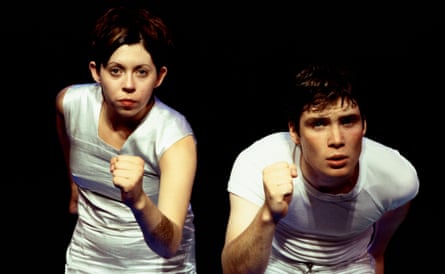
But enter into that world he did – belatedly, headlong – in 1996, when he was a 20-year-old undergraduate at University College Cork. Murphy was bored and in the second year of a law degree; over the years, he had performed with amateur bands, singing and playing guitar, but had not tried acting before. One night, out with friends, he watched an adaptation of A Clockwork Orange, a weird and ambitious production staged in a nightclub. He remembers dry ice, a DJ, mohawked performers on stilts coming out into the audience to make trouble. Murphy was bowled over. Afterwards, he started petitioning the theatre company, Corcadorca, to give him an audition. Before long, he was cast in a two-hander called Disco Pigs, about a pair of strange, inseparable teens on a night out in Cork. It was written by Enda Walsh, then an unknown playwright, and booked to run for a few weeks at Cork’s Triskel Arts Centre. But it became a smash and ran and ran.
Disco Pigs transferred to Dublin, then to Edinburgh, then London, then Europe, Australia and north America. In the end, the young cast and crew were on the road for 18 months. “It was like being in a band again. Except that people actually came to the shows,” Murphy says. “That time, making Disco Pigs, was kind of the most important period of my life. The people I met there remain my closest friends. Enda Walsh. Pat Kiernan [its director]. Eileen Walsh [his co-star]. They shaped me in terms of my tastes, in terms of what I wanted to do with my life. And it was around the same time I met my wife. She came on tour with us. It was so exciting, 20 years ago or whatever it was – we were all just kids, trying to find our way – but such a special, special time.”

He got his first screen roles, mostly in independent Irish films, off the back of the play. He remembers his hands shaking uncontrollably on set while playing a four-line extra who had to serve Brendan Gleeson a pint in 1998’s Sweety Barrett. (Gleeson has since become a pal.) In this early period, there were many unhappy meetings with casting directors, a tribe who typically struggled with the hard C in Murphy’s first name and sometimes cut him off mid-audition, mid-sentence even: “Thanks, Silly-an, you can go now.” The film industry’s capacity for callousness came into proper focus, he says, when Disco Pigs was adapted for the screen in 2001. Murphy was hired to reprise his role. Eileen Walsh, who’d played opposite him on stage for almost two years, “becoming like a sister”, was not. (Elaine Cassidy was cast in her place.) “It was a very sharp shock. I remember there was a moment when you think, ‘Am I not going to do this now?’”
That film was a gore-fest. They had a giant jar on set that said ‘Edible Bile’ on it. I remember the taste
He did make the film, and fortunately so. Danny Boyle saw it and called in Murphy to audition for a new horror film he was making, 28 Days Later. “Put through the wringer” by Boyle over five or six meetings, Murphy finally secured the lead role of Jim – “a feckin’ bike courier”, as Murphy has it, “who finds himself the avenging-angel survivor of a zombie apocalypse”. He has cheerful memories of Boyle’s shoot, mostly involving being doused in artificial blood. “Yeah, that film was a particular gore-fest. I remember a giant jar they had on set that just said ‘Edible Bile’ on it. I remember the taste.”
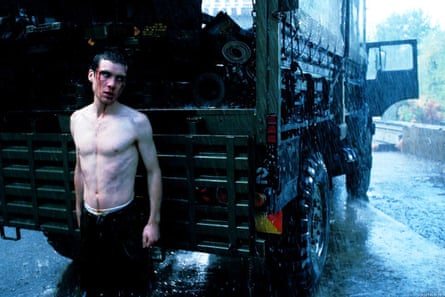
Boyle’s film secured Murphy a run of Hollywood parts. He played one of Scarlett Johansson’s love interests in Girl With A Pearl Earring in 2003, and an altogether creepier suitor to Rachel McAdams in Red Eye in 2005. That same year he returned home to Cork to film Ken Loach’s drama about the Irish war of independence, The Wind That Shakes The Barley. McGuinness was pregnant with their first son at the time, and the couple moved back to stay with Murphy’s parents for the summer. As Murphy once brilliantly described this period, “I was living at home with my folks; my wife was pregnant with our son; and we were running around the hills of west Cork shooting up Black and Tans. Fantastic!” He was also, that magic summer, in cinemas everywhere as part of Christopher Nolan’s millions-grossing blockbuster Batman Begins.
When Nolan first started scheming up his superhero reboot, in the early 00s, he had wondered if Murphy might make a good Batman. This ludicrous idea – Murphy quickly came to find it ludicrous – apparently got as far as the Irishman being urged into a bat costume. He felt swamped, silly. Nolan said, “You’re not quite right.” Murphy quickly agreed.
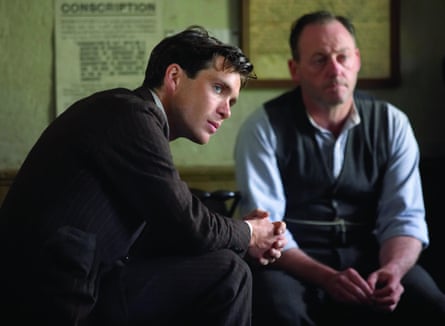
Christian Bale ended up as Batman, of course, but Nolan did use Murphy as the movie’s villain, Jonathan Crane, a spindly-limbed psychopath who dressed up in sackcloth and called himself the Scarecrow. As the Scarecrow, it didn’t matter that Murphy was slight, physically unimposing, because this was a baddie who went around dousing his victims in nerve gas, debilitating them with terrible nightmares. A few years later, when Nolan cast Murphy in his 2010 movie Inception, a high-concept summer blockbuster starring Leonardo DiCaprio, weaponised dreams featured once again. This time it was Murphy’s character who was subjected to nightmares, plunged into a coma while DiCaprio’s gang of thieves infiltrated his subconscious to plunder his secrets.
Does he ever have weird dreams himself? Um, Murphy says. Two stand out. “The classic actors’ dream, where I go on stage thinking I’m about to do a play I know.” Maybe Misterman, from 2012, or Ballyturk, from 2014, both written by Walsh, both with Murphy in the lead role, both earning noisy acclaim from critics and audiences. “And then I get out there, on stage, and I see the lighting and scenery, and it’s Disco Pigs. Deep in the recesses of my subconscious, I can still get out a few lines, after 20 years. But I’m desperately reaching for more.”

What’s the other one?
“It’s the only recurring dream I have,” Murphy says. “I’m crawling in a tunnel, to a place where it’s so narrow I can only go forward or back.” He thinks about this and adds: “I don’t know what the fuck that means in a Freudian sense.” He thinks about it some more and adds: “For God’s sake, don’t make that the backbone of your article.”
His recurring tunnel dream proved to be a strange sort of dramatic aid once Peaky Blinders came along. Murphy says he was “very, very keen” when he first read Steven Knight’s pilot script. More keen on Peaky, perhaps, than Peaky was on him. “I remember there was some reservation [on the producers’ part] regarding my physicality. And fair enough: I’m a skinny Irish guy. I’d played a bad guy a couple of times, but always weedy, nerdy guys, never physically capable ones.” Trying to get a grip on the part of Tommy Shelby, Murphy returned to the script and zeroed in on the fact that, before establishing himself as a Midlands mob boss, Shelby had been a soldier in the trenches during the first world war. He was one of those soldiers, moreover, who with grim humour called themselves “claykickers”, whose job it was to dig tunnels deep into the mud and plant bombs under enemy lines.
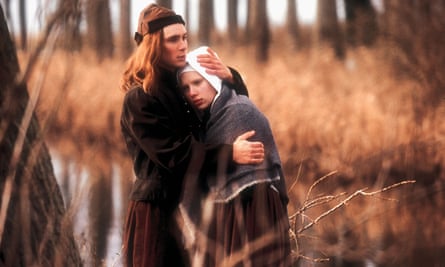
Tunnels! Murphy could sympathise. It gave him something to work with, a psychological way into a character who was very different from himself. As for the physicality of the part, Murphy set about convincing producers, as well as himself, that he could pull off Tommy Shelby by lowering the pitch of his voice, by straightening out of a lifelong slouch to adopt what he now calls his “George W Bush walk”. (Circling the park, he demonstrates: “Shoulders out. Chest as broad as possible. Making the most of what physicality you have.”) Before the pilot, and before every series since, the actor has done what he can, through his diet and the gym, to add some heft to his body. Submitting to the uniform Peaky Blinders haircut – oily flap above a close-shaved back and sides – always helps suggest a certain toughness.
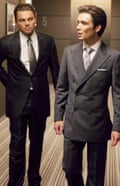
But really, as any fan of the show will tell you, the awesome menace exists almost entirely behind the eyes. “I’m trying to play a mentality,” Murphy explains. A mentality, he adds, that isn’t so easily switched off once filming on Peaky comes to an end. For three series running, he says, there has been a funny period of decompression once he gets home. The hair has to grow out, his jaw and shoulders unclench – the internal aggression, carefully tended for weeks, allowed to dissipate. “It takes time. My wife can see it happening. ‘OK. Tommy’s gradually leaving. I’m getting Cillian back.’”
Right now, in the Murphy-McGuinness household, Cillian’s back. He finished shooting a couple of studio movies late last year – a 1970s-set gangster flick, Free Fire, with Brie Larson, and a 1940s war drama, Anthropoid, with Jamie Dornan – and is granting himself some months off. He’s going to spend the time “being normal for a while”. There will be family trips to the sea, he expects. Nights in with Radio 4. Cups of Barry’s Tea and the Beatles on the stereo. “Going for runs. Reading. Being a dad.”
And turning 40.
“Yeah.” Murphy allows a hollow laugh. “Turning 40. Figuring out that new phase. But hopefully... hopefully doing it with some elegance, you know?”
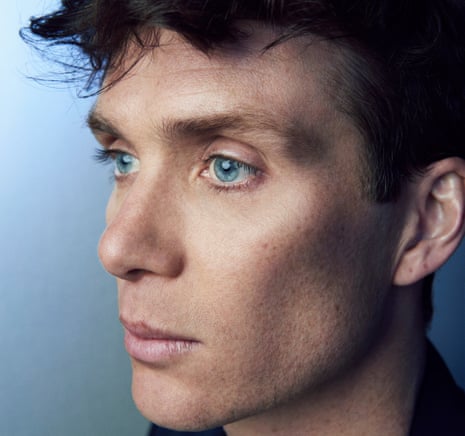
Comments (…)
Sign in or create your Guardian account to join the discussion